The National Institutional Ranking Framework (NIRF) unveils an exhaustive ranking of premier medical institutions in India, illuminating the exemplary establishments that stand at the forefront of medical education and healthcare. This meticulously curated ranking serves as a definitive benchmark for excellence in the field. Let us now explore the narratives of select eminent institutions that have earned distinction and secured their positions on this prestigious list.
“Comprehensive Ranking of Premier Medical Institutions in India for 2025 by NIRF”
| Rank | Top Medical Institutions in India | City | State | Score | Institute ID |
| 1 | All India Institute of Medical Sciences, Delhi | New Delhi | Delhi | 94.32 | IR-D-N-15 |
| 2 | Post Graduate Institute of Medical Education and Research | Chandigarh | Chandigarh | 81.1 | IR-D-U-0079 |
| 3 | Christian Medical College | Vellore | Tamil Nadu | 75.29 | IR-D-C-45654 |
| 4 | National Institute of Mental Health & Neuro Sciences | Bangalore | Karnataka | 72.46 | IR-D-U-0236 |
| 5 | Jawaharlal Institute of PostGraduate Medical Education & Research | Puducherry | Pondicherry | 72.1 | IR-D-U-0368 |
| 6 | Amrita Vishwa Vidyapeetham | Coimbatore | Tamil Nadu | 70.84 | IR-D-U-0436 |
| 7 | Sanjay Gandhi Postgraduate Institute of Medical Sciences | Lucknow | Uttar Pradesh | 69.62 | IR-D-N-33 |
| 8 | Banaras Hindu University | Varanasi | Uttar Pradesh | 68.75 | IR-D-U-0500 |
| 9 | Kasturba Medical College, Manipal | Manipal | Karnataka | 66.19 | IR-D-C-7242 |
| 10 | Sree Chitra Tirunal Institute for Medical Sciences and Technology | Thiruvananthapuram | Kerala | 65.24 | IR-D-U-0266 |
1. AIIMS: Best Medical Institutions in India
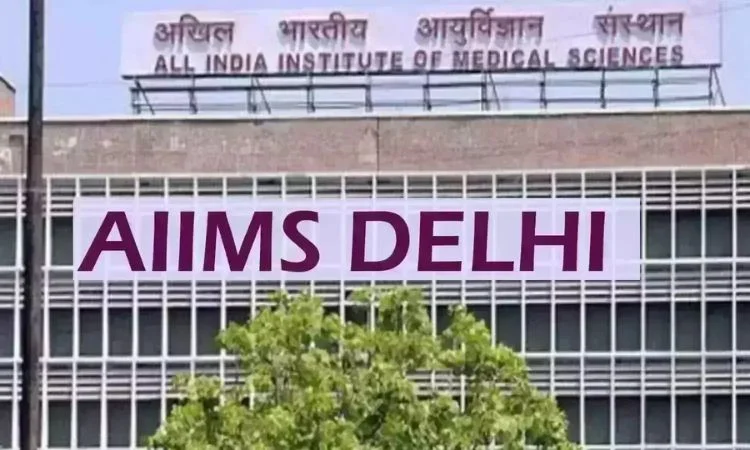
All India Institute of Medical Sciences, New Delhi, commonly referred to as AIIMS Delhi, stands as a prominent public medical research university and hospital located in the capital city of India. Governed by the AIIMS Act of 1956, this institution operates autonomously under the jurisdiction of the Ministry of Health and Family Welfare, showcasing a commitment to excellence in healthcare and medical education.
History of AIIMS
The inception of AIIMS traces back to the year 1946, originating from a recommendation put forth by the Health Survey of the Government of India. The idea gained momentum over the ensuing years, leading to the establishment and development of AIIMS in New Delhi. Throughout this transformative journey, numerous distinguished individuals contributed significantly to the realization of this vision.
Initially proposed by the then Prime Minister of India, Jawaharlal Nehru, with the intention of establishing it in Calcutta, AIIMS found its home in New Delhi due to the refusal of Chief Minister Bidhan Chandra Roy of West Bengal. The foundational stone for AIIMS Delhi was ceremoniously laid in 1952, marking a pivotal moment in the institution’s history and its commitment to advancing medical education and research in India.
2. The Postgraduate Institute of Medical Education and Research (PGIMER)
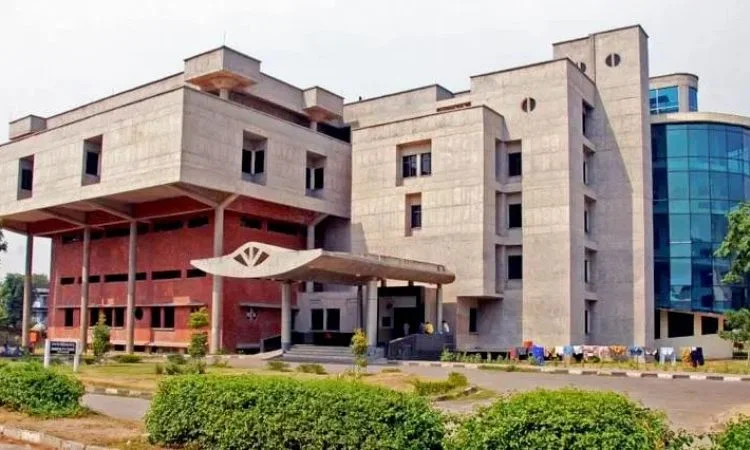
The Postgraduate Institute of Medical Education and Research (PGIMER) is a distinguished public medical university located in Chandigarh, India, holding the prestigious designation of an ‘Institute of National Importance.’ Renowned for its comprehensive educational, medical research, and training facilities, PGIMER offers a spectrum of specialties, super specialties, and sub-specialties to its students.
Functioning as the primary tertiary care hospital for the northern India region, PGIMER serves a diverse patient population, drawing individuals from Punjab, Jammu and Kashmir, Himachal Pradesh, Uttarakhand, Haryana, Bihar, and Uttar Pradesh. Beyond providing exceptional clinical services, PGIMER is a hub for medical education, offering a wide array of training programs in various disciplines of medicine.
These programs encompass postgraduate and postdoctoral degrees, diplomas, Doctor of Philosophy (Ph.D.), and fellowships, with over 50 specialized training courses available within the institute. The commitment to academic excellence and comprehensive medical education extends to the establishment of a 100-seat MBBS college, anticipated to commence operations by 2025 at PGIMER’s satellite center in Sarangpur. This initiative underscores PGIMER’s dedication to advancing medical education and healthcare services, contributing significantly to the field of medicine in India.
3. Christian Medical College
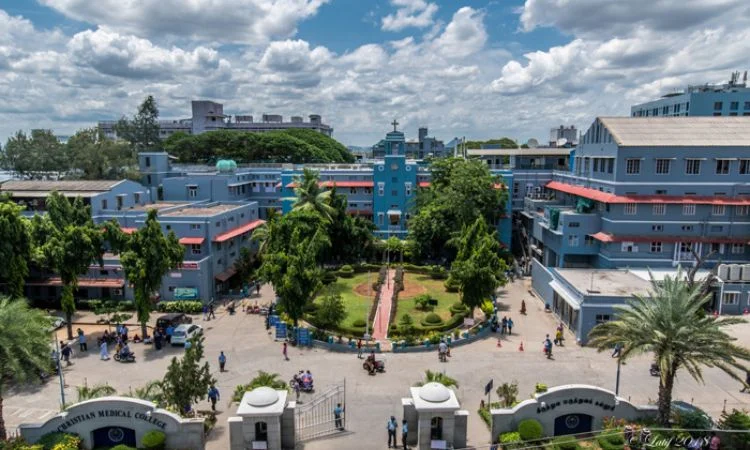
Christian Medical College, Vellore, often referred to as CMC Vellore, is a distinguished private medical institution, hospital, and research facility with strong Christian community roots. Established in 1900 by the American missionary, Dr. Ida S. Scudder, CMC Vellore is affiliated with the Tamil Nadu Dr. M.G.R. Medical University.
The institute has played a pivotal role in contributing significant achievements to the field of healthcare in India. Noteworthy milestones include the establishment of the first College of Nursing in 1946, pioneering the world’s first reconstructive surgery for leprosy in 1948, conducting India’s first successful open-heart surgery in 1961, executing the first kidney transplant in the country in 1971, achieving the first bone marrow transplantation in India in 1986, and successfully performing the first ABO incompatible kidney transplant in India in 2009.
CMC Vellore operates a comprehensive network of primary, secondary, and tertiary care hospitals in and around Vellore, Tamil Nadu, providing a wide range of healthcare services. The institution’s affiliation with the TamilNadu Dr. M.G.R. Medical University further solidifies its commitment to delivering high-quality medical education and healthcare services.
4. The National Institute of Mental Health and Neuro-Sciences (NIMHANS)
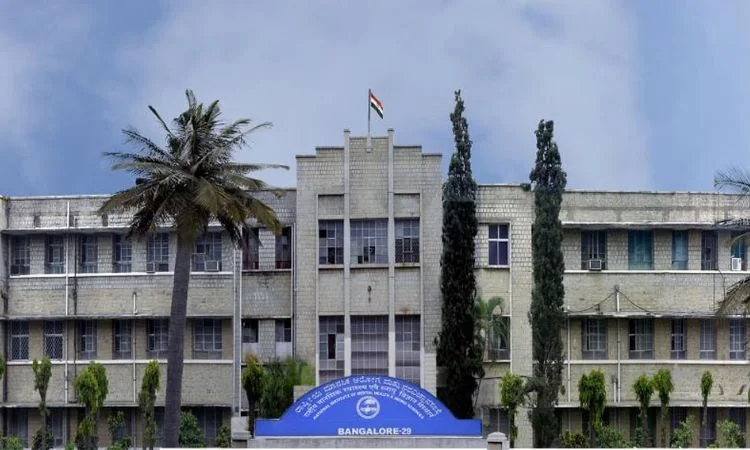
The National Institute of Mental Health and Neuro-Sciences (NIMHANS) stands as a distinguished medical institution located in Bangalore, India. Recognized as the foremost center for mental health and neuroscience education within the nation, NIMHANS operates as an Institute of National Importance, functioning autonomously under the auspices of the Ministry of Health and Family Welfare.
Its commitment to excellence is underscored by its current ranking as the 4th best medical institute in India, according to the National Institutional Ranking Framework. This positioning reflects the institute’s unwavering dedication to advancing medical education and research in the critical fields of mental health and neuroscience.
5. The Jawaharlal Institute of Postgraduate Medical Education & Research (JIPMER)
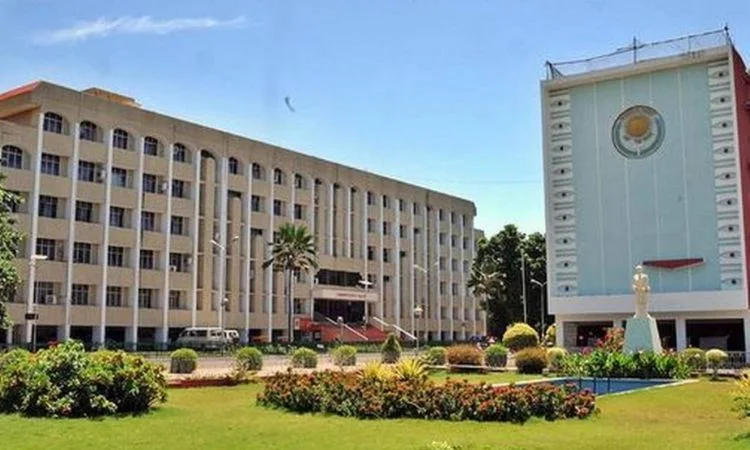
The Jawaharlal Institute of Postgraduate Medical Education & Research (JIPMER), formerly recognized as Institut Jawaharlal de formation et de recherche médicales postdoctorales, stands as a distinguished medical institution situated in Pondicherry, India. Designated as an Institute of National Importance (INI), JIPMER serves as a prominent tertiary care referral hospital. The institution operates under the direct administrative jurisdiction of the Ministry of Health and Family Welfare, under the aegis of the Indian Government, enjoying a degree of autonomy for its internal administration .
6. Amrita Vishwa Vidyapeetham

Amrita Vishwa Vidyapeetham, commonly known as Amrita University, stands as a distinguished private deemed university situated in Coimbatore, India. The institution boasts a comprehensive presence with seven campuses, encompassing 16 constituent schools strategically located across the Indian states of Tamil Nadu, Kerala, Andhra Pradesh, and Karnataka. The university’s central administration is headquartered at Ettimadai, Coimbatore, Tamil Nadu.
Amrita Vishwa Vidyapeetham offers a diverse array of academic programs, encompassing 207 undergraduate, postgraduate, integrated-degree, dual-degree, and doctoral offerings.
The programs span a wide range of disciplines, including engineering and technology, medicine, business, arts and culture, sciences, biotechnology, agricultural sciences, allied health sciences, Ayurveda, dentistry, pharmacy, nursing, nano-sciences, commerce, humanities and social sciences, law, literature, spiritual studies, philosophy, education, sustainable development, mass communication, and social work. The institution’s commitment to excellence is evident in its multifaceted academic offerings and its dedication to fostering knowledge and innovation across a spectrum of fields.
7. Sanjay Gandhi Postgraduate Institute of Medical Sciences (SGPGI)
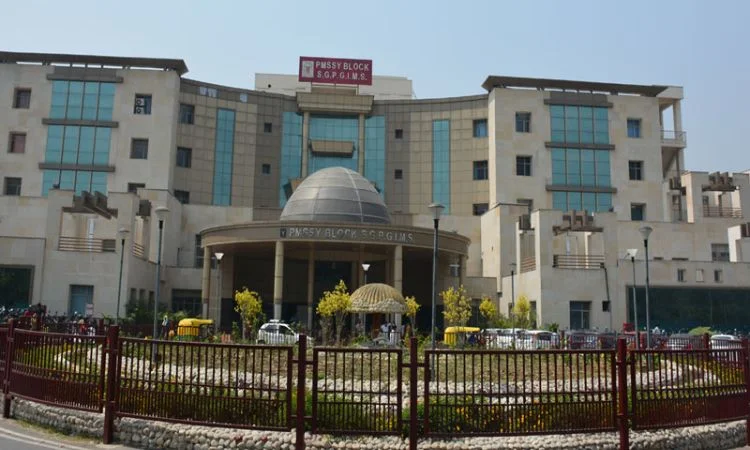
Sanjay Gandhi Postgraduate Institute of Medical Sciences (SGPGI) is a distinguished medical institution established under the State Legislature Act, situated in Lucknow, Uttar Pradesh. Positioned 14 kilometers south of Hazratganj on Raebareli Road, the institute was founded in 1983 and bears the name of Sanjay Gandhi.
Occupying a sprawling 550-acre residential campus on Raebareli Road, SGPGI is renowned for offering degrees accredited by the Medical Council of India. The institute is dedicated to providing tertiary-level medical care, exemplary teaching, comprehensive training, and cutting-edge research across various specialties. It extends educational programs at the DM, MCh, MD, and Ph.D. levels, in addition to providing postdoctoral fellowships and certificate courses. Moreover, SGPGI conducts training initiatives for senior residents.
The College of Medical Technology, affiliated with the institute, presents B.Sc. courses in nursing and BSc/MSc courses in paramedical technology within allied sciences.
Operated as an autonomous institution, SGPGI holds membership in the Association of Indian Universities and is duly recognized by the College Grants Commission. The institute functions with the status of a state college, maintaining high standards in medical education, research, and healthcare.
8. Banaras Hindu University (BHU)
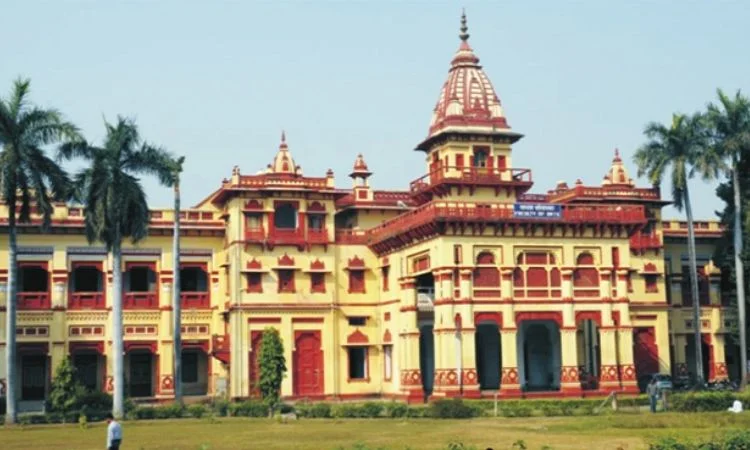
Banaras Hindu University (BHU) is a distinguished collegiate, central, and research institution situated in Varanasi, Uttar Pradesh, India. Established in 1916, the university traces its roots back to the incorporation of the Central Hindu College in 1898, originally founded by the eminent Indian Home Rule-leaguer and Theosophist, Annie Besant.
Following the marginalization of Annie Besant and her associates, Banaras Hindu University was formally founded by Madan Mohan Malaviya. This significant initiative was made possible through the generous financial support from notable figures such as the maharaja of Darbhanga, Rameshwar Singh, the maharaja of Benaras, Prabhu Narayan Singh, and the esteemed lawyer, Sunder Lal.
Boasting a student population exceeding 30,000, with 18,000 individuals residing on campus, BHU stands as the largest residential university in Asia. The university holds a distinctive position as one of the eight public institutions declared as an Institute of Eminence by the Government of India. Additionally, BHU is recognized as one of the 12 institutions from India in the BRICS Universities League, which comprises leading research universities from BRICS countries
9. Kasturba Medical College
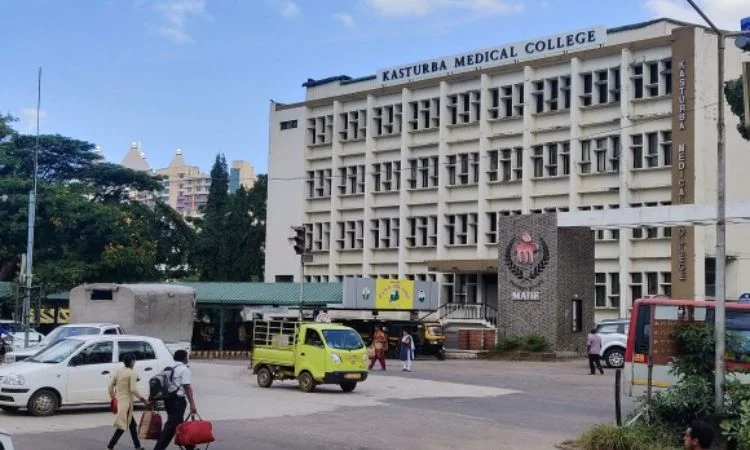
Kasturba Medical College, Manipal, and Kasturba Medical College, Mangalore, collectively referred to as KMC, are distinguished private medical institutions situated in coastal Karnataka, India, with a shared founding year of 1953. Originally established as a unified entity, these institutions subsequently evolved into two distinct colleges, each equipped with its own teaching hospital. Notably, KMC holds the distinction of being the inaugural self-financing medical college in India. Both colleges function as integral components of Manipal Academy of Higher Education, a Deemed to be University acknowledged as an Institution of Eminence.
10. The Sree Chitra Tirunal Institute for Medical Sciences and Technology
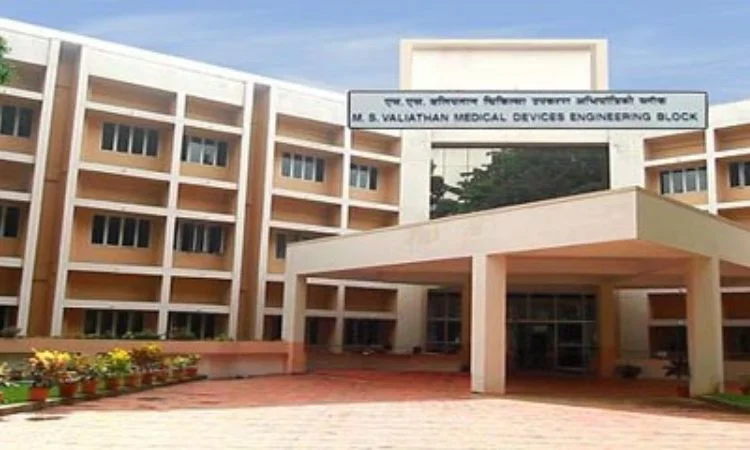
The Sree Chitra Tirunal Institute for Medical Sciences and Technology (SCTIMST), formerly known as Sree Chitra Tirunal Medical Center, is a distinguished autonomous medical school and an Institute of National Importance established in 1976 in Thiruvananthapuram, Kerala, India.
The institute bears the name of Chithira Tirunal Balarama Varma, the last Maharajah of Travancore, who generously bestowed the facility. Governed by the Department of Science and Technology, Government of India, SCTIMST operates under the aegis of administrative control.
Renowned as one of the preeminent research institutions and centers in India, SCTIMST has consistently upheld a commitment to excellence in medical education, research, and healthcare. The institute’s founding principles reflect a dedication to advancing medical sciences and technology, contributing significantly to the nation’s healthcare landscape.
Conclusion
The Comprehensive Ranking of Premier Medical Institutions in India for the year 2023, as compiled by the National Institutional Ranking Framework (NIRF), serves to underscore the outstanding status of pivotal institutions that significantly contribute to the advancement of medical education and healthcare within the nation. At the forefront of this prestigious list is the All India Institute of Medical Sciences (AIIMS), New Delhi, which stands as a beacon of excellence in both public medical research and healthcare. The institution’s unwavering commitment to its mission is exemplified under the provisions of the AIIMS Act of 1956.














